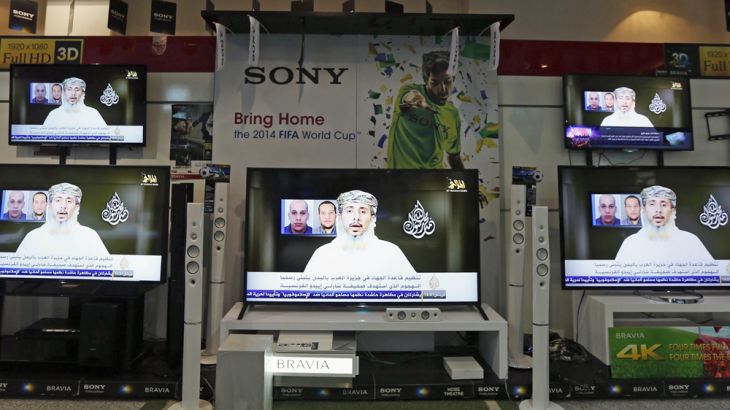
Uncharted waters for Yemen’s journalists
Caught in the middle of a power struggle, the country’s media workers have to toe a fine line between work and welfare.
To be a journalist in Yemen these days, means not knowing where you stand; what you can report. A lot has changed there in a short time. Just four years ago, the country was still under the control of President Ali Abdullah Saleh, who spent more than three decades in power.
That all ended in 2012.
Keep reading
list of 4 itemsNPR editor resigns after accusing US outlet of liberal bias
Lawmakers brawl as Georgian Parliament considers ‘foreign agent’ bill
Journalist loses foot after being badly wounded in Israeli attack in Gaza
Then, last year, Houthi fighters took control of large parts of the capital, Sanaa. And last week, when President Abd-Rabbu Mansour Hadi handed in his resignation, he effectively handed power over to the Houthis.
Throughout those transitions, Yemeni journalists have been largely free to do their work – but given the rise of the new political powers – they’re never really been sure of how far they can take their coverage, where the red lines are.
Then there is the supposedly covert US drone war against Al-Qaeda in the Arab Peninsula, or AQAP. Washington regularly calls the group one of the most dangerous offshoots of al-Qaeda but that’s a tough accusation to verify.
Very few journalists actually get close enough to report on the group, let alone on the repeated drone strikes against it which have been known to claim the lives of innocents. And that lack of reporting has created a news and information vacuum that AQAP and its affiliates are only too happy to fill.
Most recently, when Yemenis took to the streets of Sanaa last week, some were there to support, others to protest the Shia Houthis takeover of the capital. Reports came in that journalists were being targeted. Arrested. Beaten. Forbidden from covering the demonstrations, caught in the middle of a power struggle. It all started three years ago this month, with the ouster of President Ali Abdullah Saleh after 33 years in the presidential palace. Yemeni journalists have moved into uncharted waters.
The Listening Post’s Nic Muirhead now on Yemen, and the challenges reporters face while trying to cover a complex, and shifting, political landscape.